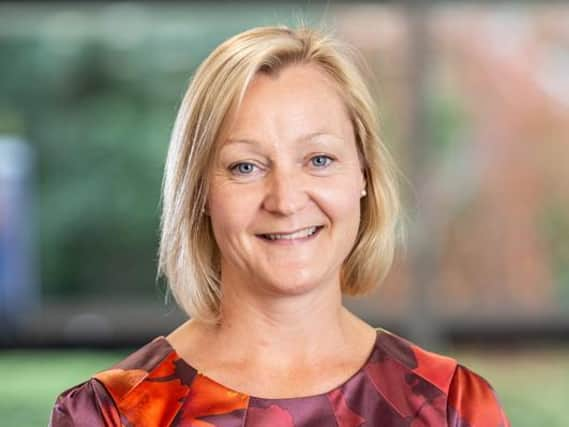Playing our part - how Leeds University Business School is supporting the regional economy


I took over as Executive Dean of Leeds University Business School in January 2020, ready to run one of the country’s top business and management institutes.
I set out to undertake a full strategic review of the School, but by March, I was engulfed managing the day-to-day continuity of our activities while keeping staff and students safe from Covid-19.
At the start of the new year the challenges and uncertainty remain and the national lockdown is deeply challenging. But with Covid-19 vaccines being rolled out, the road to some sort of normality is, I believe, in sight. For us, this means continuing to deliver inspirational learning and teaching to students and world-class research into the big issues.
Despite the challenges, we pushed forward with the strategic review. A key pillar will be how to further build our position as an international business school which is firmly rooted in the city of Leeds. This is about bringing the world to Leeds - and Leeds to the world.
The School is global in outlook and reach - we have more than 5,000 students from close to 100 counties, and our staff are drawn from many nationalities. We partner with other universities around the world to support education and research – but we have a strong sense of place, remaining authentic to our Yorkshire roots. We take our civic duty seriously, which means forming meaningful, enduring partnerships with businesses in the region and supporting growth.
There are strong foundations upon which to build. We already support the local economy in different ways: hundreds of very bright students (our standard offer for an undergraduate place is AAA at A-Level) arrive in Leeds every autumn to receive a superb education. In an average year around one-third of undergraduates take a paid placement in industry during their studies. This is a great way for a company to work with a talented student, and for students to learn at the coal face and see what post-university life might look like. We are always looking for more employers to participate and are keen to keep the talent we have nurtured in the local economy. There’s a fantastic opportunity for local employers to do more with our graduates. I recognise that this works both ways – we need to connect more with companies and organisations in the region.
At a time of global change, two trends stand out in higher education. First, as people change careers more regularly during their working lives, they are looking to universities to help them to upskill and reskill, and second, the growth of digital learning. The Business School is responding to these trends and can be a real game changer in supporting regional productivity by ensuring that the local workforce has the skills to thrive in today’s fast-changing environment. You’re never too old to learn, after all.
The University of Leeds is what we call a research-intensive university, which means that undertaking research is in our DNA. As a business school, our research can provide insights and solutions to support Yorkshire’s business community. We have been ranked in the top ten business and management schools in the country according to research power – the quality and impact of our research. I am keen to bridge the divide between academia and the practical application of our research. There are multiple ways that businesses can work with us, from supporting major research projects to direct consultancy.
Our research is as broad as it is deep. It includes supply chain management, data analytics and public infrastructure spending as well as innovation, green marketing strategies and how Covid-19 is changing the world around us. One of our flagship programmes is the Digital Futures at Work Research Centre (Digit) – a £4.5m research project in collaboration with University of Sussex Business School to help us understand how digital technologies are reshaping the world of work.
Many of us are glad to see the back of 2020, and I look forward to the Business School playing its part to get the region’s economy moving again. Swapping facemasks and hand sanitizers for graduation gowns and mortar boards will be a perfect way to start.